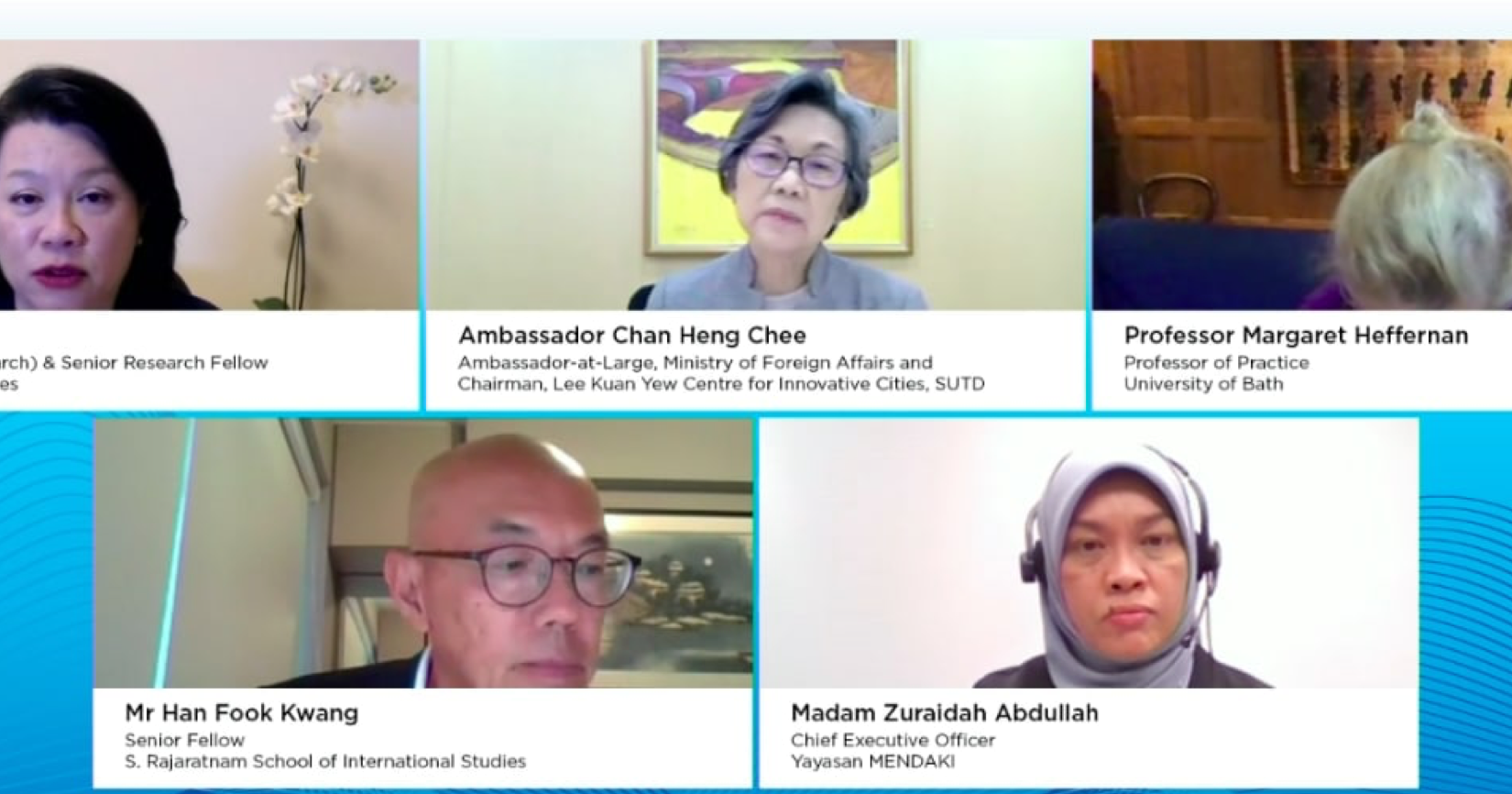Although Singapore's longest-serving ambassador to the U.S. Chan Heng Chee acknowledged that minorities in Singapore experienced racism, she believes that the "Chinese privilege" term is not as appropriate in the local context, given its history.
Chan, Ambassador-at-Large and Chair of the Lee Kuan Yew Centre for Innovative Cities in the Singapore University of Technology and Design weighed in with her thoughts on the matter during a panel discussion organised by the Institute of Policy Studies (IPS).
Chan: Minorities in Singapore face racism, including institutional racism
Chan was speaking of leadership qualities, which included, among others, reflecting the diversity of the population, and understanding the "evolving diversity" -- something that she said was "at the heart" of politics and society in multi-racial Singapore.
She also commented that young people these days are discussing "serious social issues" on their social media platforms, like anti-racism, social justice and racial justice. Chan said:
"Instagram used to be about lifestyle. You will see 10 picture frames of food, social gatherings, and fashion. These days, there are serious discussions about gender inequality, racial inequality and inequality regarding migrant workers."
She added:
"Now this may explain the explosion of heated views and reaction to Chinese privilege... Minorities feel that it's Chinese privilege, because they encounter racism and prejudice in Singapore, and institutional racism. I understand why they say that. We need to keep working hard to eradicate racism."
Experience of Chinese community in Singapore
However, Chan said she wished to provide a different perspective.
"But I want to provide the perspective that actually a segment of the Chinese population in Singapore disagree that there is such a thing as Chinese privilege.
They remember that at the birth of our nation, the Chinese community was told by Lee Kuan Yew that they should set aside their claims for majoritarianism, and accept that Chinese would not be the national language even though they were the overwhelming majority population."
Chan also mentioned the merger of Nanyang University and the University of Singapore in the 1980s, which created the National University of Singapore.
However, she said this was "painful" for the Chinese-educated community, as the students had to attend classes in English, a language they were not equipped to handle at a tertiary level.
This led to many students dropping out, and they were angry and unhappy with the government. Chan concluded:
"So perhaps Chinese privilege is not as appropriate to use in Singapore, given the history. Our social scientists, as Daniel Goh points out, have come up with other terms to describe our situation of racial inequality."
Other panellists not on board with concept of Chinese privilege
As Chan alluded to, the issue of Chinese privilege was previously discussed at another recent IPS Forum panel.
Panellist Mei Lin Fung, co-founder of People-Centered Internet, said that the term was an example of "intellectual scarcity."
Another panellist, Joel Kotkin, Presidential Fellow in Urban Futures at Chapman University in the U.S, said the idea of white privilege is "absurd" because there are many poor white people, and said there are poor Chinese people in Singapore too.
Daniel Goh, deputy head of sociology in NUS, said that bringing in a term like "Chinese privilege" is to bring in the history of a different society without being critical.
He said, "With regard to the term ‘Chinese privilege’, the realities of racism and prejudice in Singapore are not simply equivalent to white privilege in America."
Related story:
Top image from IPS Forum.
If you like what you read, follow us on Facebook, Instagram, Twitter and Telegram to get the latest updates.
